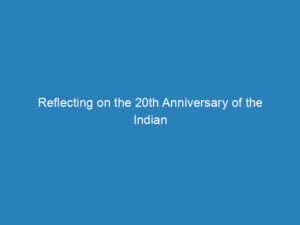
People’s March Seattle: Thousands Rally for Women’s Rights, Racial Justice, and Democracy Ahead of Trump Inauguration
On a brisk Saturday morning, the streets of Seattle came alive with the voices of over 3,000 demonstrators participating in the People’s March, a vibrant expression of advocacy for a range of social issues. The march began at Cal Anderson Park and wound through the heart of the city, culminating at Seattle Center. This annual event, which coincides with the inauguration of Donald Trump, serves as a platform for voices advocating for women’s reproductive rights, racial justice, human rights, environmental protection, and improved educational and employment opportunities.
Voices of Protest
As participants marched down Pine Street, the atmosphere was charged with a sense of purpose underscored by chants proclaiming, “This is what democracy looks like.” Marchers carried colorful signs featuring messages such as “Reproductive rights are human rights” and “We won’t go back, equal rights are human rights.” Among the crowd was Tula Holmes, a 73-year-old activist from Renton, who organized a group named Renton Rally. They displayed signs resembling gravestones inscribed with phrases like “RIP Medicare” and “RIP Women’s Rights,” symbolizing their concerns over the erosion of these rights.
Younger Generations Join the Cause
For many attendees, this march marked their first foray into political activism. Bella Lusk, 25, and Cierra Petrosino, 19, traveled from Bremerton to participate, holding American flags as they expressed their commitment to free speech. “We’re fighting for our America,” Lusk stated, adding that they learned about the event through social media. Their participation highlights a growing trend among younger individuals seeking to engage in social issues that resonate with them.
Leslie Kreher, a 72-year-old from Issaquah, reflected on her long history of activism, which began in the 1970s. She crafted her own pink hat for the march, a nod to the iconic symbol of the Women’s March movement. Kreher expressed a sense of urgency in attending, stating, “It’s discouraging to have to start over again with these same issues.”
The Broader Picture
This march was part of a nationwide movement, with events occurring in cities such as Los Angeles, Washington, D.C., and Chicago, as well as international marches in countries like Mexico and Poland. The sense of solidarity was palpable as participants united for a common cause, despite the smaller turnout compared to previous years. In 2017, for instance, over 120,000 attended the Seattle Women’s March following Trump’s first inauguration.
Concerns and Hopes
Among the participants, environmental concerns were a significant theme. Nancy Stokley, 78, painted a sign featuring orcas and salmon to draw attention to endangered species and the potential rollback of environmental protections. “I’m sad that we have to do this again,” she shared, expressing her commitment to continue advocating for the environment.
For many young marchers, the events of the day also sparked concerns about the future. University students Charlotte Jensen, Bailey Cunningham, and Ikenna Ekrich voiced their fears regarding the incoming administration’s environmental policies. Ekrich noted, “A lot of the climate policies that were enacted the last time he was elected were extremely detrimental,” emphasizing the need for systemic change rather than individual responsibility.
The Importance of Representation
While the march drew a diverse crowd, many participants noted the underrepresentation of people of color. Ekrich, who identifies as Black, highlighted the apprehension that can arise when navigating protests surrounded by law enforcement. “It’s scary to be put in a situation where there’s a lot of police,” he said, reflecting on the challenges faced by marginalized communities in these spaces.
As the march concluded, the atmosphere remained charged with determination. Participants left with a renewed commitment to continue advocating for the issues they hold dear, illustrating that the struggle for rights and justice remains as vital as ever.

